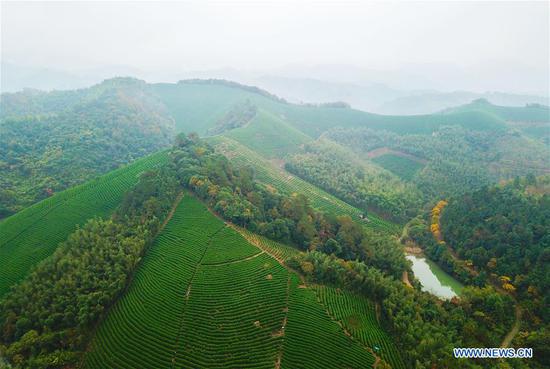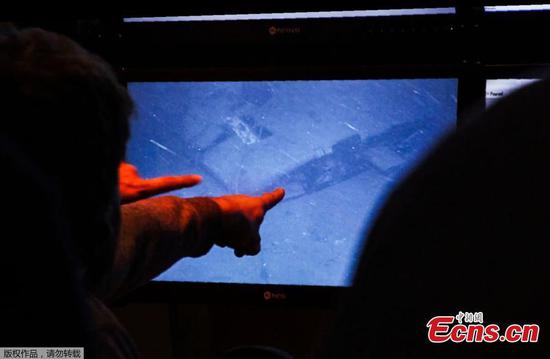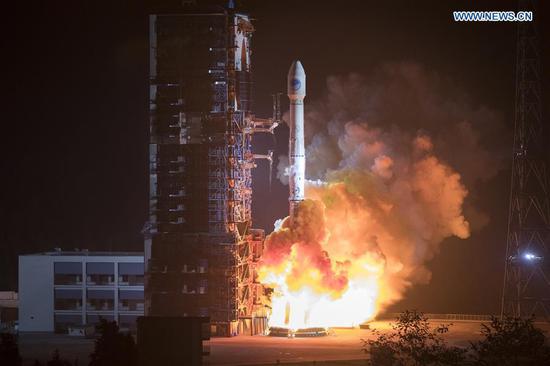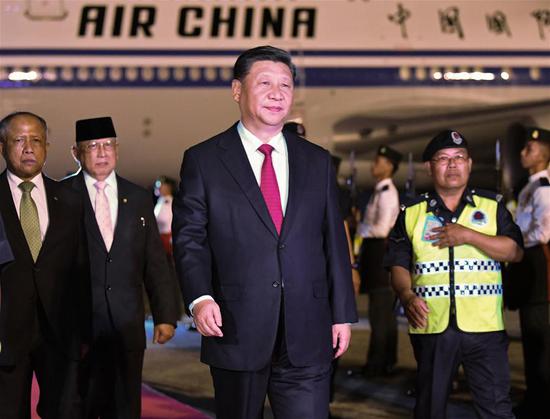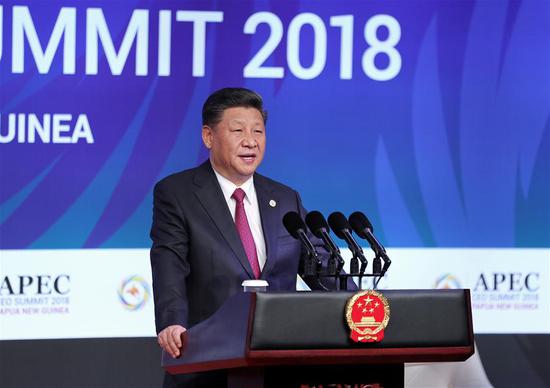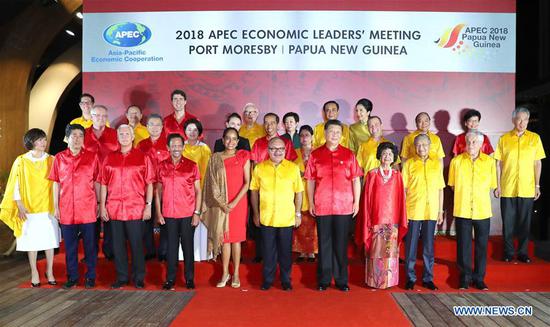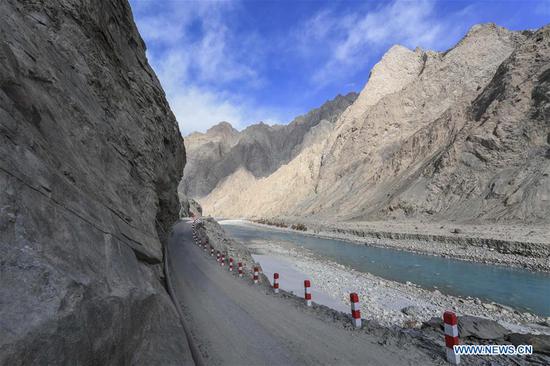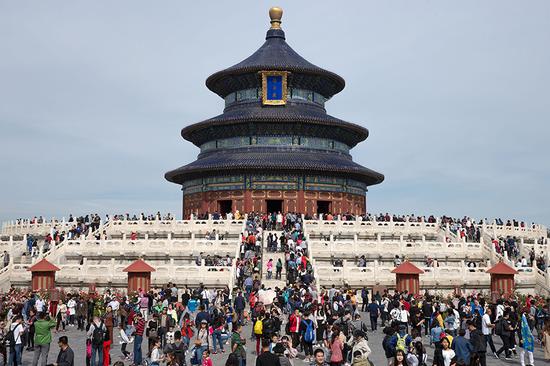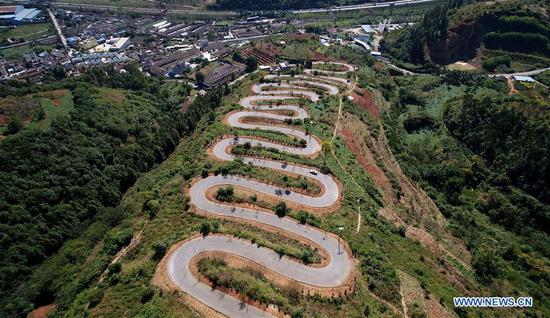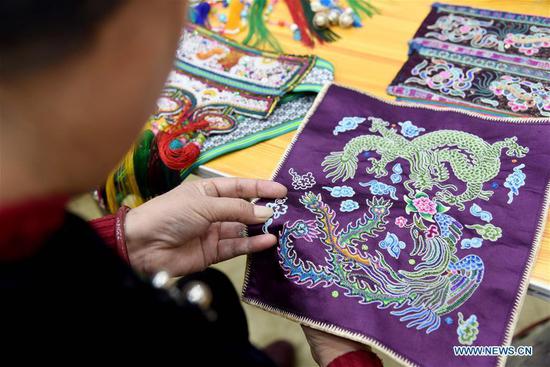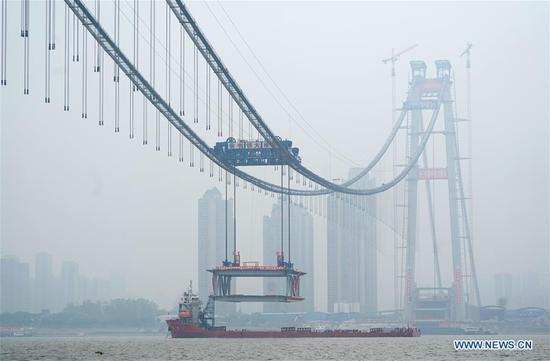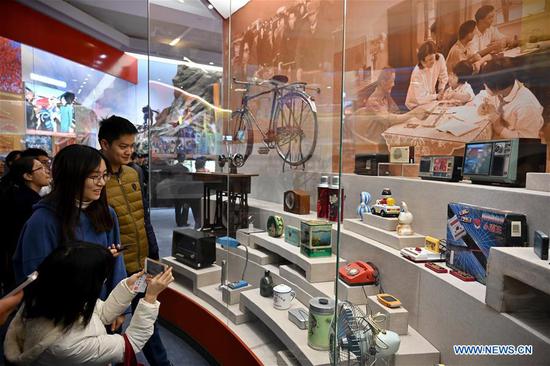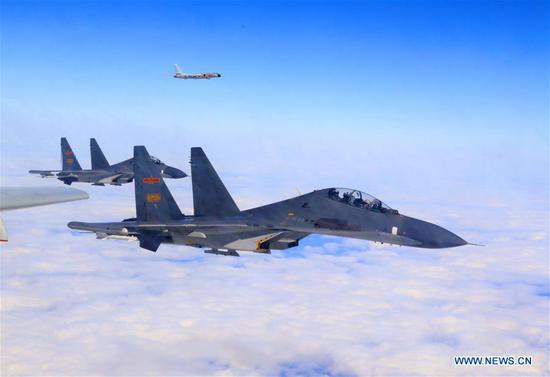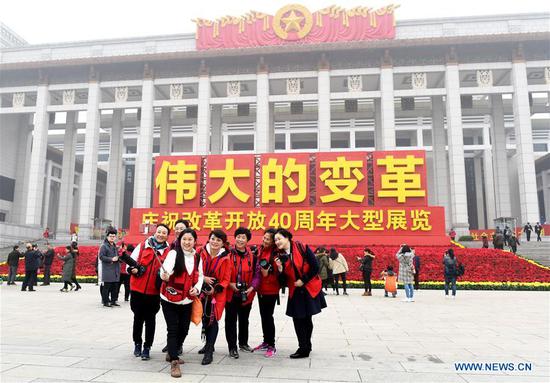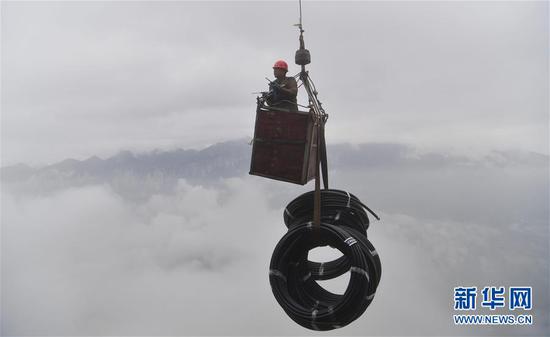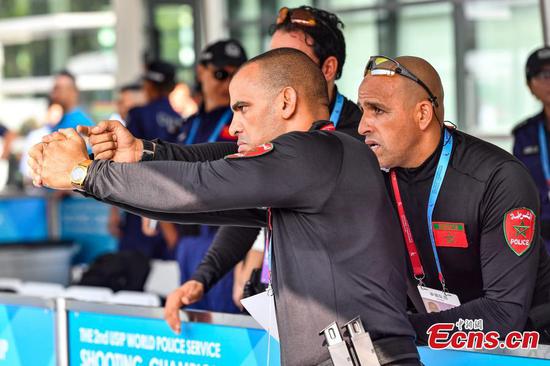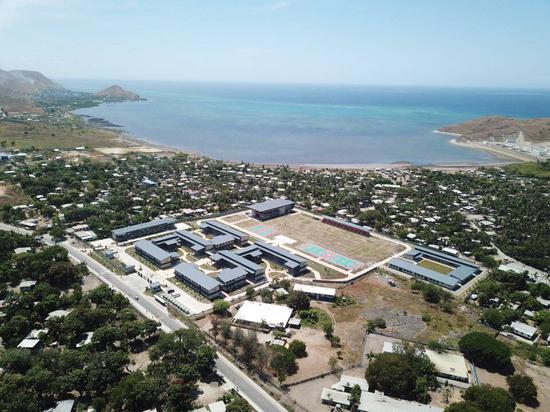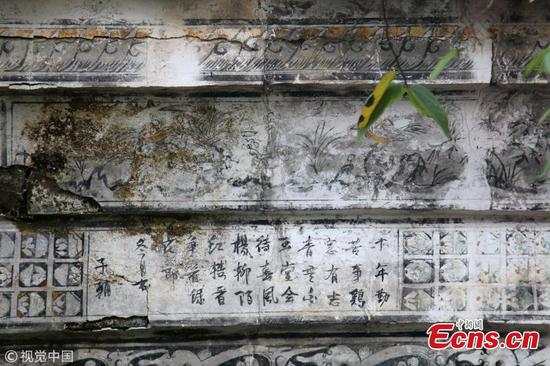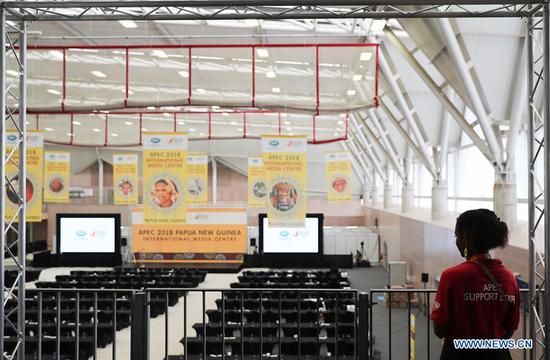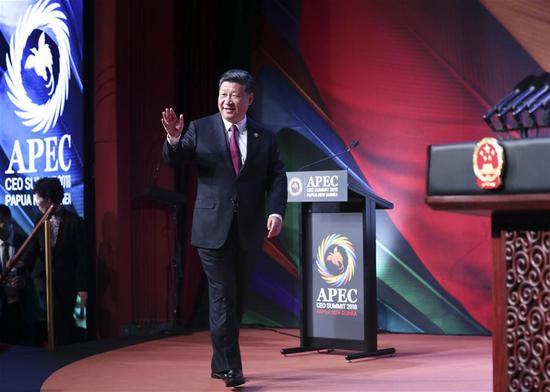
Chinese President Xi Jinping enters the venue of the Asia Pacific Economic Cooperation (APEC) CEO Summit in Port Moresby, Papua New Guinea, on Nov 17, 2018. Xi delivered a keynote speech titled Jointly Charting a Course Toward a Brighter Future while attending the summit. (Photo/Xinhua)
President Xi Jinping's keynote address at the Asia-Pacific Economic Cooperation CEO Summit has been widely acclaimed by the international community.
Xi highlighted the importance of building an "open, inclusive, innovative and rules-based" global economy on Saturday during his speech in Port Moresby, Papua New Guinea.
The president's speech indicates that China is committed to promoting globalization, and there are huge opportunities for cooperation between the world's top two economies, United States experts and executives said.
Jon Taylor, a professor of political science at St Thomas University in Houston, said, "I think that the points that were most notable in Xi's speech were his emphasis on shared regional prosperity, rising protectionism and unilateralism."
The speech underscores China's commitment to promoting economic globalization and multilateral trade, Taylor said.
"I think Xi's remarks on mutual trade benefits, the notion that protectionism solves nothing, and that confrontation produces no winners, echoed the APEC meeting's themes of free trade and diplomacy throughout the region," he added.
Alex Yang, founder of the Prescient Technology startup in Los Angeles, said, "I totally agree with President Xi on establishing an open, inclusive, innovative and rules-based world economy, especially in high-tech fields between China and the U.S.."
Taking the software industry as an example, China, through decades of hard work at all levels, now boasts strong talent in computing, engineering, science and technology, Yang said.
"However, the U.S. faces a shortage of tech engineers in both public and private sectors. There is tremendous room for the two nations to learn from each other, to supplement each other's growth needs and ultimately benefit the two economies," Yang added.
In his speech, Xi announced that China will host the second Belt and Road Forum for International Cooperation in Beijing in April. He added that the Belt and Road Initiative is a major undertaking with which China shares opportunities and pursues common development with the rest of the world.
Taylor said that like other nations participating in the BRI, Papua New Guinea and other Pacific island nations can benefit from Chinese infrastructure development, financial investment, regional coordination and smart/digital connectivity initiatives.
Samuel Kang, a city council member in Duarte, California, said: "In this globalized world, there is so much free trade. We need to understand how to create positive values for each other so we can continue to trade freely."
Andrei Polansky, a researcher at the Institute of International Relations in Moscow, said Xi's speech shows China is in favor of an open and free market without restrictions.
He agreed that building artificial barriers and breaking long-term ties is a road to nowhere. History has proved that there will be no winners from such a confrontation, and there are no problems that countries cannot solve through dialogue.
Bernard Dewit, chairman of the Belgian-Chinese Chamber of Commerce, said Xi's speech was particularly inspiring, especially Xi's saying that: "Only openness and cooperation can bring more opportunities and create more space for development. We should reject arrogance and prejudice, be respectful of and inclusive toward others, and embrace the diversity of our world."
These two sentences should be a source of inspiration for everyone working for a better world and better living conditions for all nations, said Dewit.
Luigi Gambardella, president of ChinaEU, a Brussels-based association focused on the technology sector, said Xi's remarks inject momentum into today's unpredictable world full of uncertainties, and will have a positive impact on global trade and business which have been jeopardized by protectionism and unilateralism.
Christopher Bovis, professor of international law at the University of Hull in the United Kingdom, said Xi is advocating free trade during turbulent economic times.
He is focusing the minds of policymakers on the concept of globalization as a platform of international trade. This is based on the assumption that free trade is beneficial for national and regional economic systems.
Charles Wachira, an international relations consultant based in Nairobi, Kenya, said the openness by the Chinese president again underscores the readiness of China to engage with smaller economies.
"Here one gets the real feeling that China is ready to share its generic knowledge and natural resources with the rest of the world without showing a condescending or patronizing attitude," Wachira said.
It has huge global implications, especially for Africa. Unilateralism slams the door on the continent's ambitions to bridge the gap with developed countries and fight poverty. China's presence in Africa has seen a surge in infrastructure modernization, something that was hardly achieved with years of cooperation with traditional partners, Wachira said.
The Africa renaissance narrative has been gaining momentum since the turn of the century, and it could not have been achieved without openness and expanded international trade, Wachira said.









